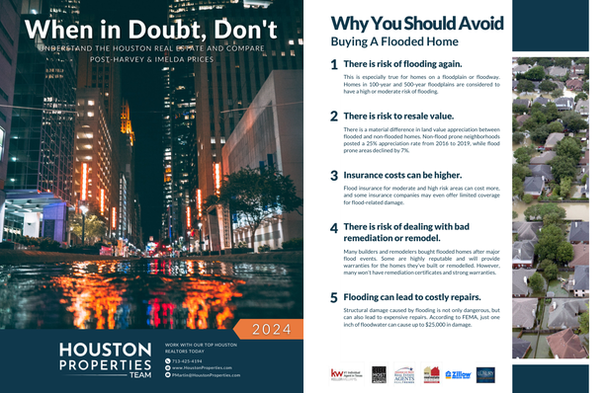Hurricane Harvey's Impact On Houston Real Estate
Hurricane Harvey is projected to cost Texas billions of dollars in damages. Here’s a list of things to do address minor to major property damages, as well as homes affected by flooding.
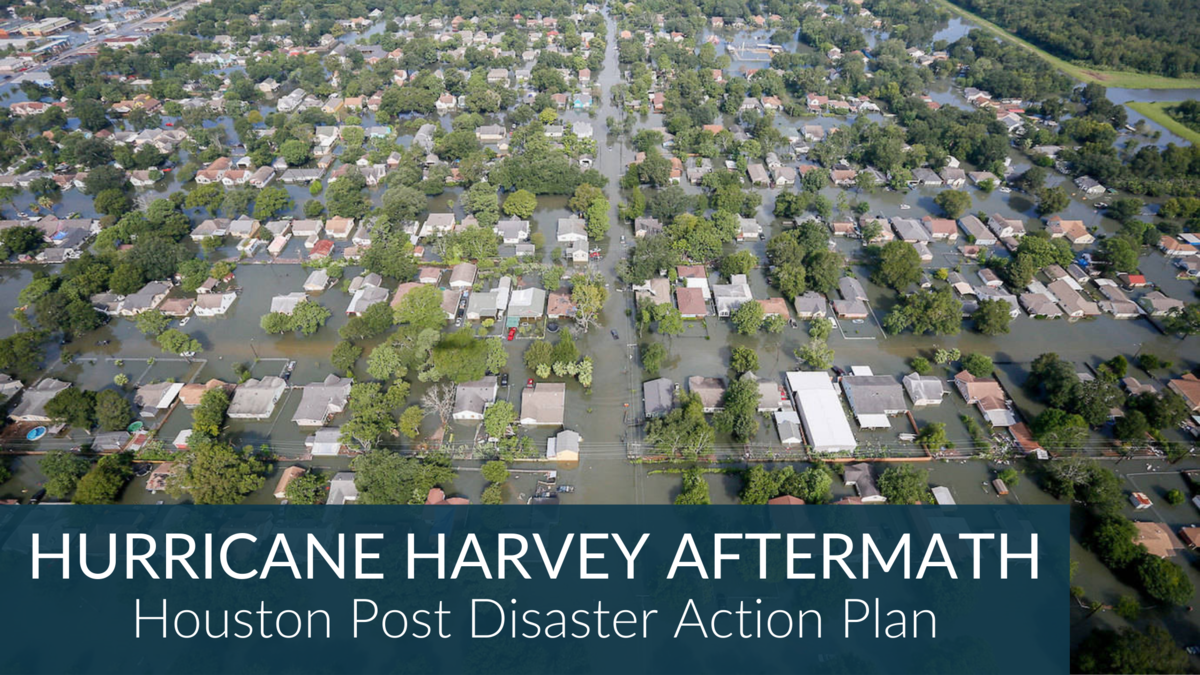
Hurricane Harvey is one of the biggest disasters to hit Bayou City.
Harvey made landfall in Texas as a catastrophic Category 4 storm, packing sustained winds up to 130 miles per hour.
It is the first hurricane to hit Texas in nearly a decade (since Ike in 2008). It is also the strongest hurricane to hit the state since Carla in 1961.
Related Houston Real Estate Resources:
“Paige Martin and her team are simply the best. She has worked with my husband and me for the last couple of years in our quest to find the perfect first home. She was patient with us throughout the process and took the time to answer all of our questions! She knows so much about the housing market so we felt very confident that we were in great hands!” – Dr. Jen Shroff
Table of Contents
- Hurricane Harvey Aftermath: Things To Do During Post Disaster Cleanup
- Post Disaster Action Plan: Things to Do To Homes with Minor To Major Damages
- Post Disaster Action Plan: Things To Do To Homes Damaged By Flooding
- The Best Houston Realtor to Sell Your Home
Hurricane Harvey Aftermath: Things To Do During Post Disaster Cleanup
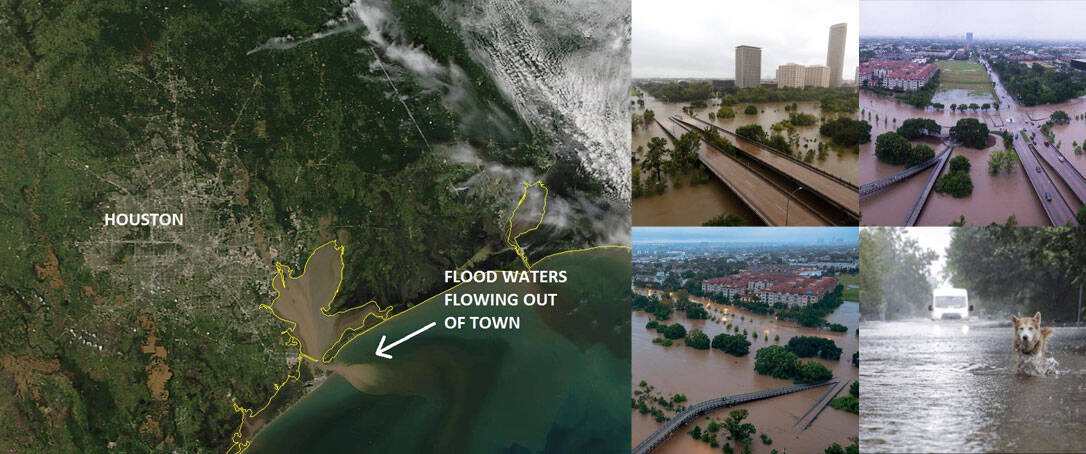
Got your home flooded? We have great contractors and vendors. Call Paige at 713-425-4194 for recommendations today or email [email protected] for more information.
While some parts of Houston are no strangers to flooding, many are not used to dealing with a catastrophe of this magnitude.
As homeowners facing minor and major property damages (for some, even potential loss of houses due to flooding), what do we do now?
Some of the most important reminders and first to-dos that come to mind include:
1. Assess if your home’s structure remains intact. Look for things like foundation cracks, walls that are less vertical than before, or a sagging roof.
If you suspect the home’s structural integrity is compromised, DO NOT risk getting inside at all.
2. If your home only sustained minor damages and you are 100% sure it’s safe to enter, start cleaning immediately.
Don’t wait for an adjuster. It will take a while for them to respond to everybody. Being active also helps give us a more positive outlook on the situation.
3. As you clean up, take videos and pictures of everything. Document everything from as many angles as possible.
Keep all the copies in one safe place – a plastic case or waterproof binder is ideal. If you can, make digital copies too, using a USB or hard drive.
4. Try and keep all damaged materials. Haul them out of the house, but try and keep them for the adjuster to review.
Sort them out as best as you can – IE, all kitchen items in one pile, all living room items in another.
5. Remember that FEMA flood insurance does NOT pay for Additional Living Expenses (living somewhere else due to the loss of use of your home from flooding).
6. File for FEMA assistance: [https://www.fema.gov/assistance/individual){:target="_blank"}.
7. Flooded cars are resolved through your Auto Insurance. Make sure you’re documenting this too.
8. The flooded home and contents are resolved on FEMA Flood Insurance.
9. Homeowners Insurance, Renters Insurance, and Condo Insurance do not cover Flooding from Rising Water.
10. Keep receipts of all materials bought to fix and repair everything.
These are the first things that come to mind.
Below we have broken down the specific To Dos depending on the severity of Hurricane Harvey’s damages to your home.
Post Disaster Action Plan: Things to Do To Homes with Minor To Major Damages
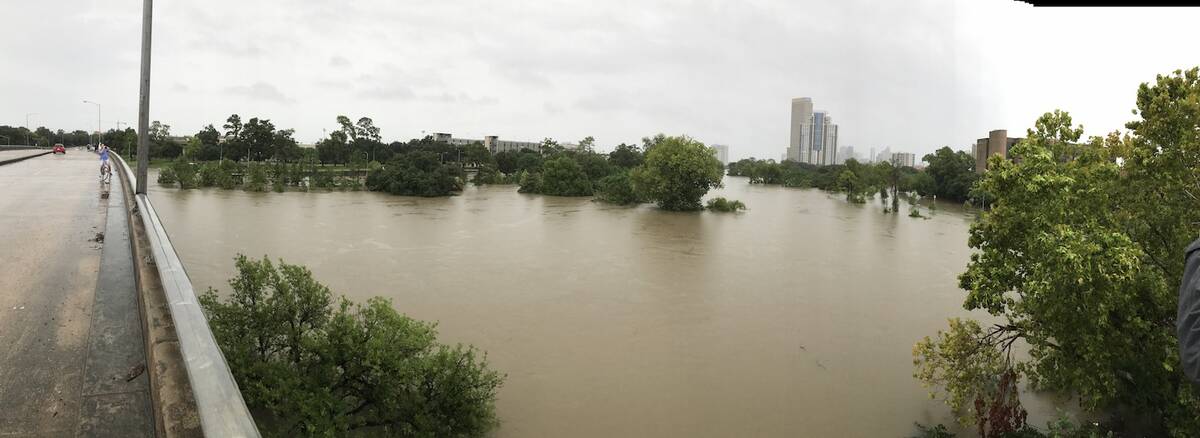
"The Houston Properties Team make real estate transactions a lot less complicated for sellers – they take care of everything AND they get the highest prices and the shortest closings. Paige went the extra mile in helping us and has been diligent in giving us reliable and intelligent recommendations. You're the best Paige and congrats on being the #1 Keller Williams agent in the entire state of Texas!" – Kathryn (Google Review)
Hurricane Harvey is projected to cause billions of dollars in property damage in Texas.
Understandably everyone is anxious to assess the damage and start the rebuild.
NOTE: Ensure that the worst of the storm has passed before doing any property assessing or rebuilding.
Be vigilant and monitor the situation by listening to local radio stations (if power is out), checking credible news sites for the most recent updates, and talking directly to the proper authorities.
1. Wear protective clothing and be cautious when cleaning up to avoid injury. This includes face masks, boots, gloves, and coats.
2. Check the yard for debris. Put everything in a pile and secure it.
3. If you have pets, make sure their pen/area is clean and free of any harmful debris before placing them back.
AVOID keeping dogs tied unless you’re 100% sure your area is safe from flash floods.
4. Identify possible exterior home damages before entering the property.
Be mindful of these spots as you work your way inside. If you suspect the home’s structural integrity is compromised, DO NOT risk getting inside at all.
Look for things like foundation cracks, walls that are less vertical than before, or a sagging roof.
We have great contractors and vendors – feel free to message me for recommendations.
5. Use flashlights in the dark. Do NOT use candles, as there might be gas leaks or highly flammable materials strewn all over the house.
Do NOT burn charcoal indoors because burning charcoal produces high levels of carbon monoxide that can reach lethal levels in enclosed spaces.
6. If power is restored, do not start all major appliances at once. Turn them on gradually to reduce damage to sensitive equipment.
Do not use electrical or gas appliances that have been wet – aside from possible electrocution; these can also be a fire hazard.
7. Document all damages and take pictures of everything. This is critical for insurance claims.
Take as many photos of your belongings and property as possible, both in digital and printed format. Keep everything in a waterproof case or plastic binder.
8. Homeowners are responsible for making sure the property is not further damaged in the aftermath of a storm.
Board up broken windows and cover damaged roofs to prevent additional damage from occurring.
9. Call a storage facility you can find immediately and reserve a unit. You will need a place to put your stuff while repairs are going on, and space is limited.
10. Keep an eye out for mold. This is VERY IMPORTANT: Mold is a common occurrence following storms — and a major health risk.
Aside from being a serious health risk, mold can cause further damage to wood floors, ceiling tiles, drywall, and other parts of a house if left untreated.
Within a day of a flood, mold can begin forming. Two of the biggest red flags are discoloration and a strong, musty smell.
It's important to remove items from the home if they've been soaked with water and can't be fully dried.
This can include everything from rugs and furniture to drywall and appliances.
NOTE: Understand that you can only do so much.
If there is any risk at all to the safety of your home (or any parts or rooms within it), it's best to leave it to the professionals.
We have some great vendors.
We have already reached out to a few, and while some of them are dealing with their own home flooding, some are already preparing to bring in contractors from out of state to be able to assist with a rapid cleanup.
Contact Paige Martin if you need recommendations.
Post Disaster Action Plan: Things To Do To Homes Damaged By Flooding
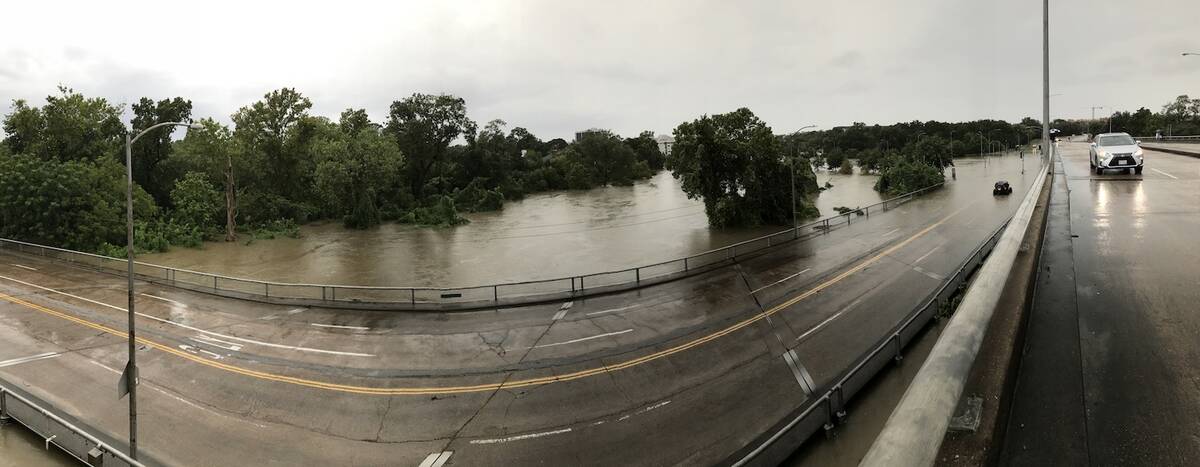
As the authority in Houston real estate, we'll provide you with the most candid advice on any property so you can make the best decision for you and your family. We'll tell you the "bad" and the "ugly" because we're not just your real estate agent — we're your trusted advisor.
Getting even just a few inches of rainwater inside your house can be disheartening. Losing it to major flooding is downright devastating.
Here are a few things that can help lessen the burden.
1. Call the Federal Emergency Management Agency (FEMA): at 800-621-3362. Call them and give them all the information you have.
While FEMA’s grants to victims are far below what’s needed to fully recover from Harvey, it’s a start.
2. DOCUMENT EVERYTHING. Take pictures of all of the damages to your property. Be as detailed as you can.
It also helps if you have existing photos of your house BEFORE Hurricane Harvey.
Also, keep receipts for all purchases made after the storm. Many insurance policies don’t just cover damage and property that’s lost.
In some cases, the insurer will be on the hook for additional expenses incurred because of the disaster.
This can include food receipts (if the kitchen is unusable), hotel accommodations (if bedrooms are inaccessible), etc.
3. Start preparing documents and all the necessary paperwork.
Get photocopies of your driver’s license, birth certificate, passport, property tax records, vehicle insurance, house insurance, etc.
FEMA and insurance companies will want proof of identification and personal records, so it’s necessary to have multiple copies of this on hand.
Keep everything in a plastic binder or a waterproof case. Upload digital copies online and have soft copies in your USBs and/or hard drive.
4. Do your best to file property damage claims before September 1.
House Bill 1774, which was backed by the insurance industry and passed by the 85th Texas Legislature last month, goes into effect at 12:01 AM, Friday, September 1, 2017.
According to Jeff Rasansky of Rasansky Law Firm, “This new law will curtail the ability of policyholders to sue insurance companies over property damage claims following extreme weather events. Essentially, the bill will make it much more difficult for homeowners and business owners to hold insurers accountable for underpaid claims or poorly handled claims’ investigations by cutting the penalties for insurers who offer inadequate compensation on weather-related property damage claims.”
5. If you lost your car to flooding, take pictures and document your car insurance for claims later.
If you can, avoid buying used cars for a while – the market will be teeming with flooded cars being sold as “not flooded”.
If you really must buy a second-hand car, check the floorboards for dampness, check the wheel well in the trunk for dampness, check all the lights, blinkers, and high beams, and check under the hood.
6. For properties that will need demolition, get everything out as soon as you can. Sort what’s still usable from what needs to be disposed of.
Get a storage unit if you can, and store all of your important items there.
We have great contractors and vendors. Contact me if you need recommendations.
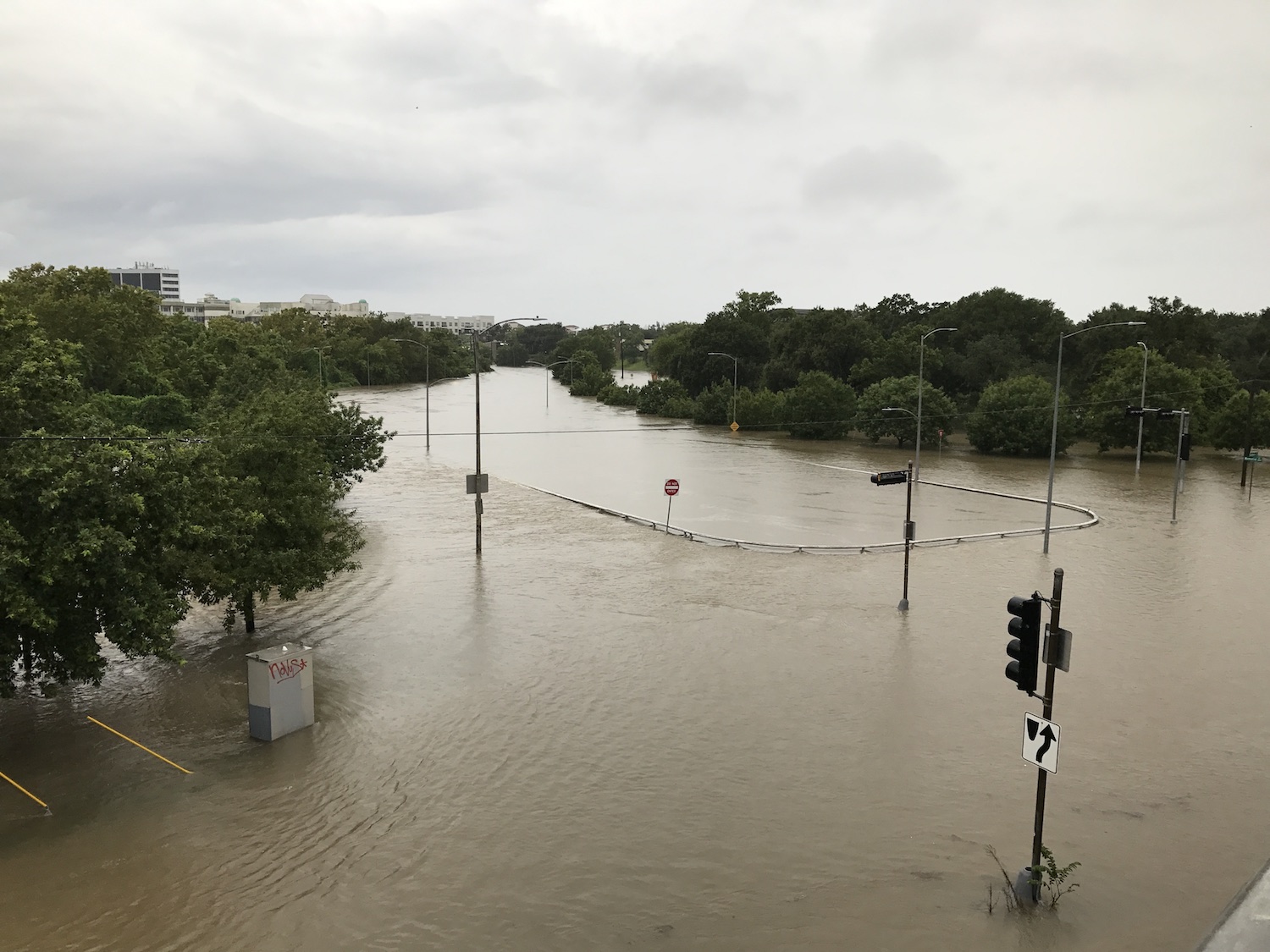
7. With thousands of homes affected by Harvey, expect that contractors and vendors will be in high demand. Construction workers will be in short supply too.
Providing that the home remains structurally sound, do what you can in the meantime. Get a few friends and family to help out.
If needed, partner with a few neighbors and help each other out. Here are a few things to keep in mind as you do the rebuilding:
Get a facemask or a respirator. Your home may have dead animals, molding, or other chemical and gas leaks.
Kill the main power and unplug all appliances before you start. Be on the lookout for exposed wiring and broken appliances.
Tools will be hard to come by, so account for whatever tools you may have, specially crowbars, hammers, sledgehammers, cutters, and pliers. Wheelbarrows are essential; try to get your hand on at least one.
Take out the fridge. If there is rotten food inside, secure it by duck-taping the doors.
Get the carpeting, vinyl tiles, linoleum, and sheetrock next. These are prime areas for molding, and you want to avoid this as much as you can.
8. Register your property damage on CrisisCleanup.org.
Non-profit and crisis management organizations like All Hands Volunteers, Habitat for Humanity, and Samaritan’s Purse use the program to organize volunteers to help with the cleanup and rebuilding process.
After registering, your home is logged on their map. They will then call you if they have volunteers in the area and assist in demolishing your home at no cost.
These are charity organizations that spend months in disaster areas helping families recover.
9. Contractors will have little to no availability. Be wary of contractors trying to rip you off.
Get copies of their licenses, research their history, and make sure they are who they say they are and that they are not a fly-by-night operation.
We have great vendors and contractors. We have already reached out to a few, and while some of them are dealing with their own home flooding, some are already preparing to bring in contractors from out of state to be able to assist with a rapid cleanup.
Contact Paige Martin if you need recommendations.
10. Plan for the future and make property improvements if you have the resources.
It doesn’t have to be big: things as minor as adding extra outlets, changing where the cables are laid out, and improving the water piping layout can be good updates.
The Best Houston Realtor to Sell Your Home

The Houston Properties Team has a well-defined structure based on the individual strengths of each member. Each member is a specialist in their role – which is why our homes sell faster and for more money than average.
Paige Martin, Broker Associate with Keller Williams Realty, and the Houston Properties Team are ranked among the top residential Realtors in the world.
They have been featured on TV and in dozens of publications including The Wall Street Journal, Fortune Magazine, Reuters, Fox News in the Morning, Money Magazine, Houston Business Journal, Houstonia, and Houston Chronicle.
Paige Martin was just ranked as the #5 agent in the world with Keller Williams, completing over $1 Billion in Houston residential real estate sales.

Recent awards include:
– 2022: #1 Residential Real Estate Team by Sales Volume, Houston Business Journal
– 2021: Best Real Estate Teams in America, RealTrends.com
– 2021: Top 100 Women Leaders in Real Estate of 2021
– 2021: America’s Top 100 Real Estate Agents
– 2021: Top Real Estate Team (Houston Properties Team), Houston Business Journal
– 2021: Best Houston Real Estate Team, Best of Reader’s Choice
– 2021: Top Real Estate Team (Houston Properties Team), Houston Business Journal
– 2021: #1 Real Estate Team, Keller Williams Memorial
– 2020: America’s Best Real Estate Teams, Best of America Trends
– 2020: Best Houston Real Estate Team, Best of Reader’s Choice
– 2020: Top Real Estate Team (Houston Properties Team), Houston Business Journal
– 2020: #6 Individual Agent, Keller Williams, Worldwide
– 2020: #1 Individual Agent, Keller Williams, Texas (Top Keller Williams Realtor)
– 2020: #1 Real Estate Team, Keller Williams Memorial
- 2019: Top Residential Realtors in Houston, Houston Business Journal
- 2019: America’s Best Real Estate Agents, RealTrends.com
- 2019: #5 Individual Agent, KW Worldwide
- 2019: #1 Individual Agent, KW Texas
- 2018: #5 Individual Agent, Keller Williams, Worldwide
- 2018: #1 Individual Agent, Keller Williams, Texas
- 2018: #1 Individual Agent, Keller Williams, Houston
- 2018: America’s Best Real Estate Agents, RealTrends.com
- 2018: Top 25 Residential Realtors in Houston, Houston Business Journal
- 2018: Texas’ Most Influential Realtors
- 2017: #1 Individual Agent, Keller Williams, Texas
- 2017: #1 Individual Agent, Keller Williams, Houston
- 2017: #10 Individual Agent, Keller Williams, Worldwide
- 2017: America’s Best Real Estate Agents, RealTrends.com
- 2017: Top 25 Residential Realtors in Houston, Houston Business Journal
- 2017: Texas’ Most Influential Realtors
- 2016: #1 Individual Agent, Keller Williams, Texas
- 2016: #1 Individual Agent, Keller Williams, Houston
- 2016: #20 Individual Agent, Keller Williams, Worldwide
- 2016: Texas’ Most Influential Realtors
- 2016: Top 25 Residential Realtors in Houston, HBJ
- 2016: Five Star Realtor, Featured in Texas Monthly
- 2016: America’s Best Real Estate Agents, RealTrends.com
- 2015: #9 Individual Agent, Keller Williams, United States
- 2015: #1 Individual Agent, Keller Williams, Texas
- 2015: #1 Individual Agent, Keller Williams, Houston
- 2015: America’s Best Real Estate Agents, RealTrends.com
- 2015: Top 25 Residential Realtors in Houston, HBJ
- 2015: Five Star Realtor, Texas Monthly Magazine
- 2014: America’s Best Real Estate Agents, RealTrends.com
- 2014: #1 Individual Agent, Keller Williams Memorial
...in addition to over 318 additional awards.
Paige also serves a variety of non-profits, and civic and community boards. She was appointed by the mayor of Houston to be on the downtown TIRZ board.
Benefits Of Working With The Houston Properties Team
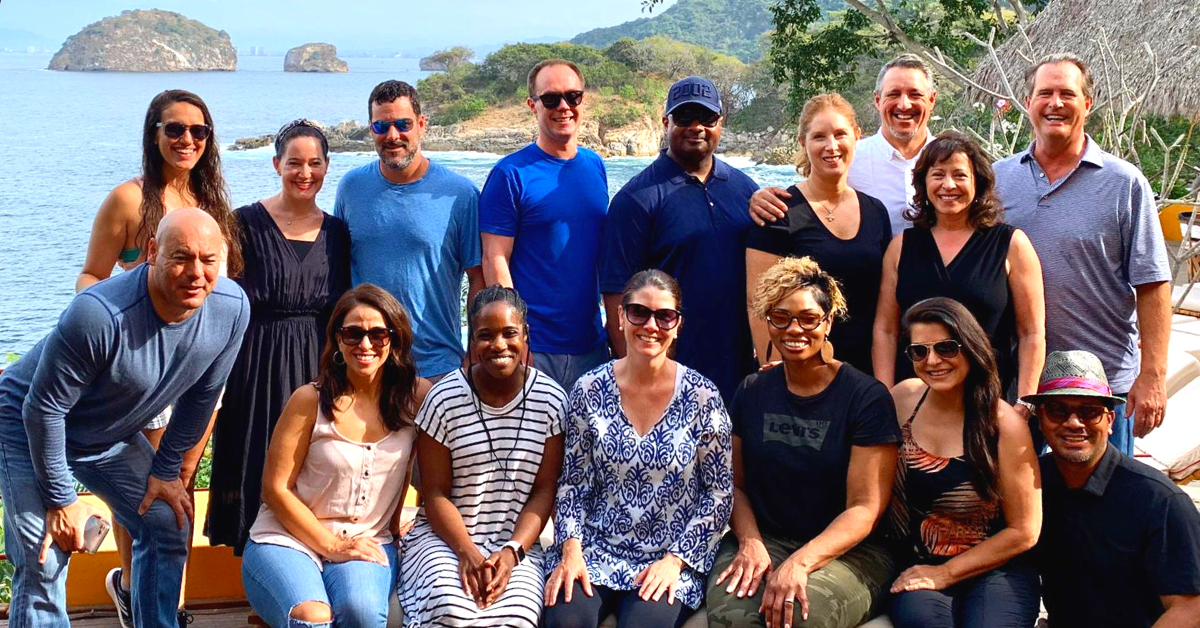
Our team, composed of distinguished and competent Houston luxury realtors, has a well-defined structure based on the individual strengths of each member.
We find the team approach as the most effective way to sell homes. We have dedicated people doing staging, marketing, social media, open houses, and showings. Each Houston Properties Team member is a specialist in their role—which is why our homes sell faster and for more money than average.
The benefits of working with a team include:
- the ability to be in two or three places at one time; a member can handle showings, while another answer calls
- collective time and experience of members
- targeted advice and marketing of agent expert in your area
- competitive advantage by simply having more resources, more ideas, and more perspectives
- a “checks and balances” system; selling and buying a home in Houston is an intensely complex process
- more people addressing field calls and questions from buyers and agents to facilitate a faster, successful sale
- efficient multi-tasking; one agent takes care of inspections and repair work, while another agent focuses on administrative details
- multiple marketing channels using members’ networks
- constant attention: guaranteed focus on your home and your transaction
- lower risk for mistakes. Multiple moving parts increase oversights. A team approach handles these “parts” separately
- flexibility in negotiation and marketing
- better management of document flow
- increased foot traffic through more timely and effective showing schedule coordination; and
- increased sphere of influence and exposure to more potential buyers.
To meet all the award-winning members of the Houston Properties Team, please go here.


